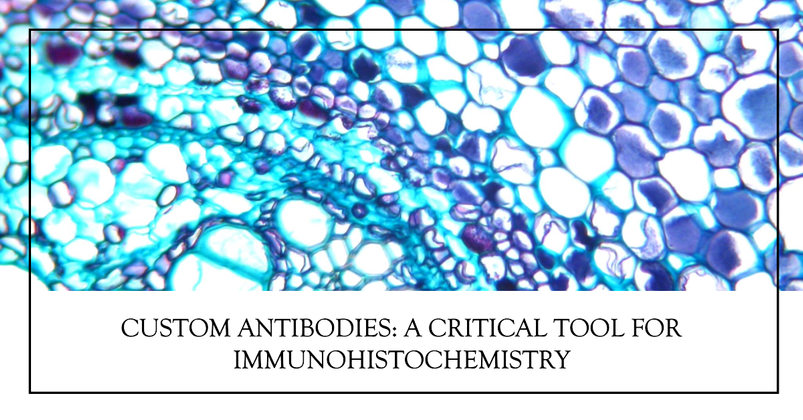Custom Antibodies: Advancing Discovery and Innovation in Biotechnology
Nov 30th 2023
In the always-changing field of biotechnology, tailor-made antibodies have surfaced as potent instruments, propelling advancements in study, diagnostics, and the creation of therapies. These highly specialized substances play a central part in clarifying intricate biological processes. This identifies illnesses with unmatched accuracy and devises precise treatments.
This piece examines the varied influence of personalized antibodies on propelling exploration and originality in biotechnology. It also explores their creation, uses, and the transformative capacity they possess for the future of healthcare.
The Importance of Antibodies in Biotechnology
Antibodies in biotechnology are crucial, as these immunoglobulins are central in progressing various facets of exploration and clinical uses. Their remarkable precision in identifying antigens makes them priceless instruments for scientists and clinicians. In the lively biotechnology environment, antibodies contribute to a myriad of procedures, from essential exploration to the creation of inventive medical answers.
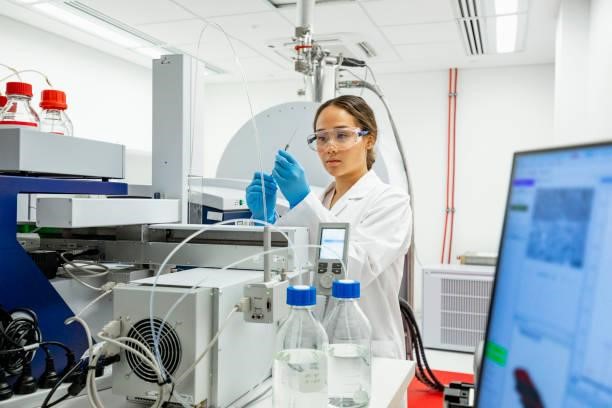
One of the vital uses of antibodies in biotechnology is the domain of custom antibody services. That said, scientists heavily depend on such developmentto customize antibodies for particular research requirements. This method enables the crafting of antibodies intended to aim at exact antigens, thus boosting the precision and dependability of experimental results.
Meanwhile, personalized antibody services cover different phases, including antibody production, monoclonal antibody development, and polyclonal antibody production.
Antibody engineering is at the forefront of biotechnology, demonstrating the sector's dedication to originality. Scientists participate in adjusting antibody frameworks, incorporating state-of-the-art methods like antibody purification and antibody conjugation. This forward-thinking method widens the range of custom antibody generation and adds to the general progress of biotechnology research tools.
Moreover, in the biopharmaceutical sector, antibodies act as the foundation of medicinal progress. Creating therapeutic antibodies has unfolded fresh horizons in addressing different illnesses, showcasing the transformative capacity of these particles. Moreover, antibodies are crucial in antibody-based diagnostics, offering accurate and dependable disease identification approaches.
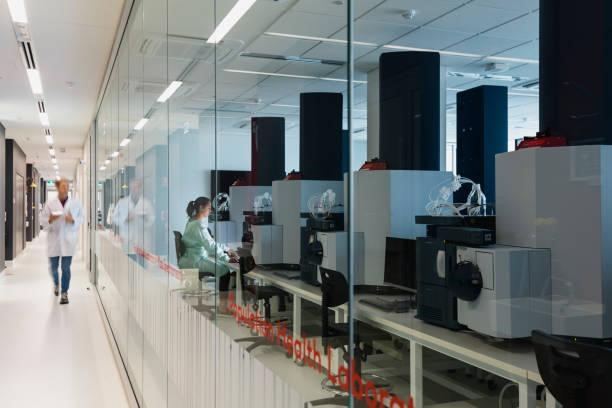
Production of Custom Antibodies
Creating personalized antibodies is a detailed and complex procedure, starting with the meticulous choice of an antigen—the central point that the antibody will accurately focus on. This selected antigen can cover a range, including proteins, peptides, minor substances, or even complete cells, determined by the particular objectives of the investigation. The flexibility in antigen choice highlights the flexibility of personalized antibody creation, enabling researchers to adjust antibodies to their experimental requirements.
Scientists and biotech experts depend on specific services to aid in the creation of these customized antibodies. Tailored antibody services establish the base, offering a complete range of answers that extend from the first antigen choice to the concluding steps of antibody formation. These services frequently encompass various facets, such as monoclonal antibody development and polyclonal antibody production.
Antibody engineering is a vital part of the personalized antibody creation procedure. This complex field involves adjusting the framework of antibodies, including cutting-edge methods like antibody purification and antibody conjugation. These actions improve the precision and effectiveness of antibodies and add to the broader domain of biotechnology research tools, promoting originality and paving the route for new uses.
The impact of personalized antibodies stretches beyond the lab, notably in the biopharmaceutical industry. In this realm, the creation of therapeutic antibodies proves these particles' transformative capacity. These antibodies, carefully fashioned through methods like antibody-based diagnostics, not only assist in comprehending illnesses but also reveal new prospects for precise and efficient medical interventions.
The persistent quest for information is apparent in activities like antibody discovery servicesin the lively biotechnology setting. These undertakings highlight the cooperative endeavors directed at extending the limits of biotech innovation. As personalized antibodies persist as vital instruments in scientific investigation, their creation remains a foundation in progressing our comprehension of the complex molecular realm and driving advancements in various domains.
Applications in Research
Tailored antibodies have transformed into essential instruments, integrating their importance into the elaborate fabric of biological exploration, providing researchers a subtle perspective to explore cellular and molecular activities more profoundly.
Among their numerous uses, a central and crucial function lies in the confirmation and portrayal of new biomarkers—an essential facet of modern biomedical research. Biomarkers, molecular entities that indicate the existence or advancement of distinct biological activities or illnesses, signify crucial hints in understanding the intricacies of biological systems.
Tailored antibodies are widely used in methods such as ELISA kits, where their precision is utilized for accurate and responsive identification. The collaboration between personalized antibodies and ELISA kits is especially noteworthy in biomarker exploration, offering robust frameworks for measuring particular molecules.
Furthermore, combining technologies like peptide and gene synthesis also boosts personalized antibodies' usefulness. Peptide creation permits the making of peptide antigens, broadening the collection of molecular objectives that personalized antibodies can be crafted to identify. Genetic invention, conversely, facilitates the formation of genetic structures for expression, emphasizing the adaptability of personalized antibodies in diverse experimental configurations.
The combination of antibody sequencing adds a layer of complexity to exploration efforts. It clarifies the exact amino acid sequences of personalized antibodies, providing an understanding of their structural subtleties and enhancing their efficiency for particular uses.
Concurrently, custom antibody productionsupplements these exploration endeavors. These solutions guarantee the trustworthy and steady generation of tailored antibodies, aiding the scientific community in their pursuit of understanding. Also, protein manufacturing assistance contributes to the broader range of molecular exploration, aligning with the varied character of biotechnological improvements.
As the function of tailored antibodies keeps growing, the cooperation of these particles with state-of-the-art technologies and solutions nurtures a rich soil for advancements in medical research. This cooperative interaction, eased by progress in antibody production and associated services, drives the scientific community toward a more thorough understanding of biological complexities, clearing the path for inventive diagnostics, treatments, and a deeper grasp of the essential components of existence.
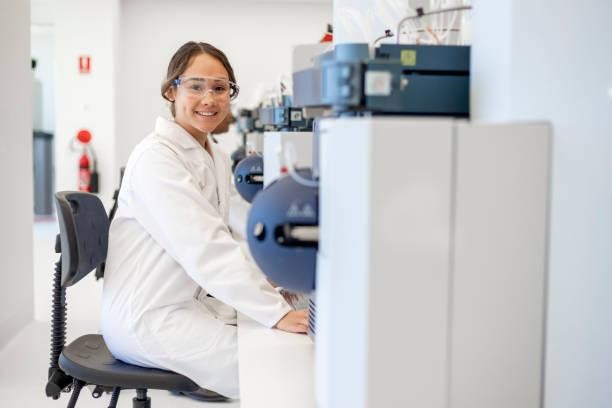
Custom Antibodies in Diagnostics
In the field of diagnoses, the use of personalized antibodies is a foundation guided by their unmatched accuracy and specificity. Their function in diagnostic tests, like enzyme-linked immunosorbent assays (ELISA) and immunohistochemistry, is crucial, adding to the trustworthy and responsive identification of biomolecules—necessary for precise diagnostic results.
Custom antibodies play a vital part in creating and improving diagnostic tests, especially in manufacturing ELISA test kits. The cooperation between personalized antibodies and ELISA examination kits guarantees a robust and particular framework for identifying target molecules, boosting the precision of diagnostic outcomes. This cooperative endeavor emphasizes the crucial function that custom antibody productionservices have in progressing diagnostic technologies.
Moreover, the arrival of cutting-edge methods has introduced additional complexity to diagnostic uses. Modified antibodies, designed for improved efficiency, add to the accuracy required by diagnostic tests. Services focusing on recombinant protein expression blend effortlessly with the requirements of the diagnostic environment, presenting solutions that address the developing necessities of precise and dependable diagnostics.
The path from selecting antigens to reaching the ultimate diagnostic outcome encompasses carefully coordinated actions, emphasizing the significance of offerings covering antibody sequencing. Businesses delivering antibody sequencing services notably guarantee the excellence and uniformity of tailored antibodies, thus strengthening their function in diagnoses.
At the same time, solutions like custom peptide synthesis, custom protein synthesis, and custom gene synthesis are critical in broadening the collection of objectives for personalized antibodies. This adaptability is especially beneficial in diagnostic uses, where a varied array of biomolecules might require targeting for thorough and accurate examination.
The combined endeavors of diverse entities, encompassing Elisa Kit Manufacturers and proteinSynthesis Companiesadd to the all-encompassing panorama of diagnostic tools. The inclusion of protein expression additionally fine-tunes the diagnostic procedure, guaranteeing that the tailored antibodies utilized demonstrate optimal functioning.
As the diagnostic setting persists in changing, the detailed interaction between tailored antibodies and cutting-edge solutions is essential to fulfilling the increasing requirements of precision and sensitivity. The inputs of such serviceproviders, antibody sequencing companies, and entities concentrating on custom antibody services jointly mold the path of diagnostic improvements. In this active setting, the precision and specificity of personalized antibodies stand out as indicators of dependability, driving the realm of diagnoses toward improved efficiency and diagnostic accuracy.
Therapeutic Applications
The healing environment is experiencing a deep change triggered by the appearance of personalized antibodies. This change in approach is clear in the growing importance of antibody-oriented medications that have smoothly become part of clinical routines. Single-type antibodies are at the leading edge of this healing transformation, carefully crafted to aim at particular proteins intricately engaged in disease procedures. The accuracy and effectiveness they providefrequentlyexceed established therapeutic approaches, signifying a notable progression in medicine.
The influence of personalized antibodies in medical treatments goes beyond their targeting abilities; it covers the flexibility in their design and construction. The inclusion of cutting-edge methods, like peptide creation, enables the making of peptide antigens that can be accurately aimed at by personalized antibodies. The interaction between peptide creation and personalized antibody creation additionally fine-tunes the medical potential, optimizing the precision of the antibodies for aimed and efficient therapy.
Moreover, the medical setting also observes the impact of elements like peptide synthesis prices and the inputs of firms concentrating on peptide creation. The availability and cost-efficiency of peptide creation play a vital function in forming the practicality and expandability of personalized antibody-based medical treatments, guaranteeing that these pioneering treatments are reachable to a more extensive patient group.
As the realm of personalized antibodies persists, so does their influence on medical approaches. The growing cooperation between personalized antibodies and inventive technologies is pushing the creation of new medications with improved effectiveness and minimized side effects. This cooperative endeavor, steered by progress in personalized antibody creation, and single-type antibody development, is reshaping the medical setting, presenting new optimism for patients and healthcare providers.
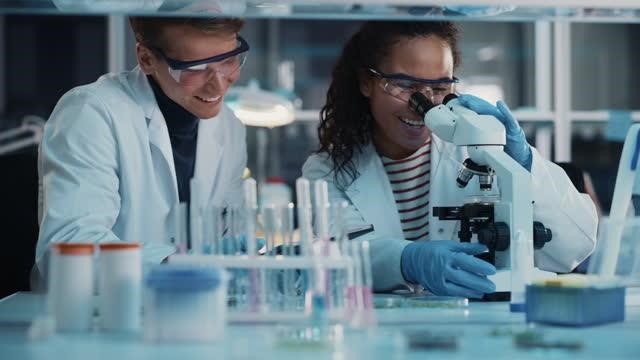
Challenges and Future Directions
While personalized antibodies have unquestionably changed the terrain of biotechnology and healthcare, difficulties in their creation and use require an ongoing search for inventive answers. One notable challenge that has attracted notice is the likely immunogenicity of antibodies formed in animals.
The traditional method of using animal hosts in the immunization procedure might result in the formation of antibodies that, when introduced into human patients, could prompt an immune reaction. This worry has urged a move in emphasis toward progressing modified antibody technologies as an encouraging route to surpass these constraints.
The shift to modified antibody technologies signifies a crucial move in dealing with the immunogenicity difficulty. Through utilizing genetic manipulation, scientists can plan and manufacture antibodies entirely in a human setting, leading to completely human antibodies with decreased immunogenic potential. This method improves the safety characteristics of personalized antibodies and corresponds with the broader tendency in biotechnology to decrease dependence on animal-derived items.
An additional difficulty exists in the intricacy and fluctuation of biological systems, which can impact the duplicability of personalized antibodies. Attaining uniform outcomes across diverse experiments and production sets is vital for the dependability of these antibodies in exploration and therapeutic uses. Scientists are actively investigating standardization procedures and quality control steps to improve the duplicability of personalized antibody creation.
Moreover, the need for personalized antibodies has risen recently, resulting in heightened rivalry and extended lead durations for creation. This increased demand emphasizes the significance of simplifying and perfecting creation procedures to fulfill the changing requirements of the scientific and medical groups. Advancements in mechanization, enhanced refinement methods, and perfected creation frameworks are being investigated to tackle these difficulties and boost the effectiveness of personalized antibody services.
Peering forward, the forthcoming paths of personalized antibodies encompass a many-sided strategy. Progress in high-capacity screening technologies, linked with artificial intelligence applications, possess the capability to hasten antibody discovery and perfection procedures. Incorporating these technologies can notably diminish the time and resources needed for creating personalized antibodies, nurturing a more nimble and reactive biotechnology setting.
Furthermore, partnerships between education, business, and regulatory organizations will be vital in molding personalized antibodies' future. These collaborations can steer standardization endeavors, set up optimal procedures, and ease the creation of directives that boost the dependability and duplicability of personalized antibody production.
Conclusion
Although difficulties endure, the active setting of personalized antibodies is marked by continuous improvements and dedication to tackling these obstacles. The change towards modified antibody technologies attempts to improve duplicability, and the examination of cutting-edge screening technologies and cooperative endeavors jointly indicate an encouraging future for continually developing and utilizing personalized antibodies in biotechnology and healthcare.

